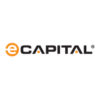Maintaining a healthy cash flow is essential for any business, yet it remains one of the most persistent challenges companies face. Whether covering wages, purchasing stock, or funding growth initiatives, businesses often need fast access to working capital to bridge gaps or seize opportunities. This is where cash flow finance come into play—a flexible and efficient financing solution designed to support businesses in meeting their operational needs.
The UK’s alternative lending market has grown significantly in recent years, driven by the rise of technology-enabled (fintech) lenders. In this blog, we’ll explore what cash flow finance is, how it works, and why it’s becoming an indispensable tool for UK businesses.
What is cash flow finance?
Cash flow finance is a form of unsecured business finance designed to provide working capital based on projected future cash flow. Unlike traditional bank loans, which often require property, vehicles, or other tangible assets as security, cash flow finance focuses on the company’s revenue-generating capacity and financial performance.
Key Features of Cash flow finance:
- Unsecured – Approval is based on financial health and projected cash flow rather than assets.
- Short-Term – Designed for immediate needs, with repayment periods ranging from several months to a few years.
- Quick Access – Faster approval and disbursement compared to high-street banks.
How does cash flow finance work?
- Application – Businesses provide recent financial statements, revenue history, and cash flow forecasts.
- Assessment – Lenders review trading performance, turnover, and repayment capacity.
- Approval – The loan amount is often set as a multiple of monthly cash flow.
- Disbursement – Once approved, funds are released quickly—often within a few working days.
- Repayment – Borrowers make fixed repayments, including interest and any associated fees.
Who benefits from cash flow finance?
This type of finance is particularly well-suited for businesses that:
- Have strong cash flow but limited assets to secure against borrowing.
- Require short-term working capital to manage operations.
- Experience seasonal fluctuations in revenue.
- Need fast funding to act on growth opportunities.
Advantages of cash flow finance
- Fast Access to Capital – Ideal for urgent needs such as wages or stock replenishment.
- No Collateral Required – There is no requirement for businesses to pledge collateral such as property or equipment.
- Flexible Use of Funds – Can be applied to marketing, supplier payments, or operating expenses.
- Simplified Application – Typically less paperwork compared to traditional banks.
- Supports Growth – Enables businesses to act quickly on expansion opportunities.
Challenges of cash flow finance
- Higher Interest Rates – Lenders may charge more due to the unsecured nature of the loan.
- Short Repayment Periods – Can place pressure on future cash flow if not planned carefully.
- Reliance on Cash Flow Strength – Businesses with irregular or weak revenue may struggle to qualify.
- Additional Fees – Origination or early repayment charges may increase the overall cost.
Common uses for cash flow finance
- Covering Payroll – Ensures staff are paid promptly, even during cash flow dips.
- Purchasing Stock – Helps businesses prepare for demand surges due to seasonality.
- Bridging Receivables Gaps – Provides liquidity while awaiting client invoice payments.
- Expansion Projects – Funds for new hires, premises upgrades, or marketing drives.
- Unexpected Costs – Covers emergencies such as equipment failure or urgent supplier payments.
Real-world example: cash flow finance in action
A London-based online retailer sees a sharp rise in orders ahead of Christmas but needs additional funding to buy stock and bring in temporary warehouse staff. By securing a £40,000 cash flow loan, approved and disbursed within four days, the business restocks in time, fulfils all orders, and achieves record seasonal sales. The loan is fully repaid within six months, leaving the business stronger and customers satisfied.
How to choose the right cash flow loan
- Compare Lenders – Seek out reputable lenders with clear terms and transparent pricing.
- Understand the Costs – Consider interest, arrangement fees, and repayment schedules.
- Define Your Purpose – Be clear on how funds will be used and ensure the return outweighs borrowing costs.
- Check Cash Flow Projections – Make sure repayment commitments align with your forecasted inflows.
Conclusion
Cash flow finance is a versatile and powerful option for UK businesses looking to address short-term challenges or invest in growth. By focusing on a company’s financial health rather than requiring physical security, they provide an essential source of capital for businesses that may not qualify for traditional lending.
With the UK fintech sector continuing to innovate, accessing these loans has never been easier. Online applications, AI-driven credit assessments, and fast approvals are helping businesses of all sizes unlock funding when it matters most.
If your business needs quick, flexible finance, cash flow finance could be the ideal solution. With careful planning, it can provide the stability and agility needed to keep operations running smoothly and drive future success.
Contact us to access the working capital your business needs with flexible financing solutions aligned with your company’s cash flow cycles.
Key Takeaways
- Cash flow finance provides fast, unsecured finance for UK businesses.
- They are based on trading performance and projected revenue, not collateral.
- Ideal for payroll, stock, growth initiatives, and bridging receivables gaps.
- Accessible through UK fintech lenders, with faster processes than traditional banks.




